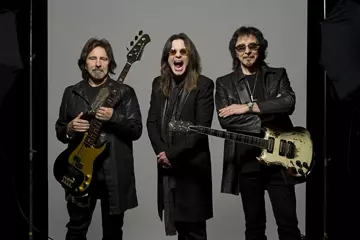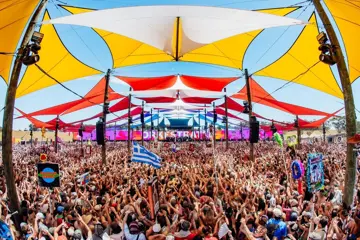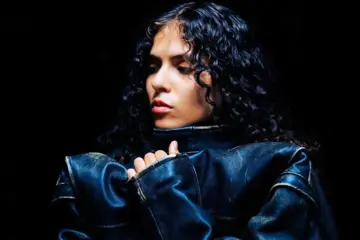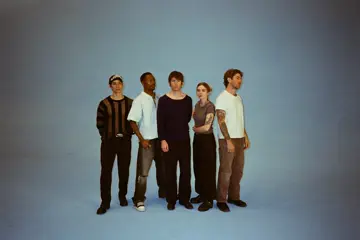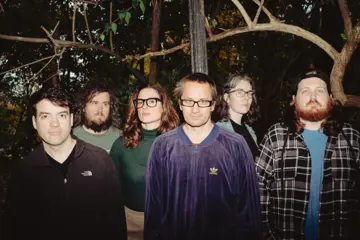These days, the inner-city Melbourne suburb of Carlton is best known for its garden and proliferation of fine foods, but it was only a few decades ago that the region was serving as the epicentre of a counter-cultural music and art movement.
This thriving mid-‘70s milieu would eventually produce some of the most enduring names in the Australian music scene of the time before the advent of punk and creeping gentrification forced the haphazard movement to a standstill. Now these heady few years and the songs of its key players have been accumulated in new two-disc compilation (When The Sun Sets Over) Carlton: Melbourne’s Countercultural Inner City Rock Scene Of The ‘70s, featuring acts such as Skyhooks, The Sports, Jo Jo Zep & The Falcons, both of Paul Kelly’s early bands (The Dots and High Rise Bombers), Daddy Cool, Mondo Rock, Stiletto, The Bleeding Hearts plus many more lesser-known (but no less interesting) outfits.
Seemingly driven by the proximity to Melbourne University and its colleges plus the ready availability of cheap terrace houses to rent, Carlton, and its surrounding suburbs, at the time was a hotbed of music, theatre, arts and politics. Shows were not only held in pubs but in ballrooms and halls, and there was an incestuous nature to the music side of things with bands having fluids and sharing members aplenty.
Skyhooks ended up using these relatively humble beginnings to launch a career that loomed large over the country’s psyche for the rest of the decade, and guitarist Bob “Bongo” Starkie has fond memories of these fledgling foundations.
Don't miss a beat with our FREE daily newsletter
“It’s funny, we because we were obviously a part of it but you really didn’t realise what was going on back then because it was all in the making, it was all about letting the water find its own course,” he reflects. “But when you look back there was so much cross-pollenisation going on — if you look at Chris Worrall, Martin Armiger and Rick Grossman, every time you blinked they were playing in another band or another line-up. It was quite homogenous as everyone sort of juggled for positions, and the bands sort of changed overnight. It was a real melting pot.
“I loved going to see bands — it was what I loved doing — and I sort of fell into Skyhooks. I’d just been playing in little bands when I was at school, and then I had my own band just before I went to uni, but it was just a hobby — I was just having a bit of fun before we knuckled down and did something for real. And then I somehow just met up with [Skyhooks bassist/vocalist Greg] Macainsh — we both went to Swinburne [Institute Of Technology] together — and then I just took a bit of a left turn and ended up playing guitar for ten years with him.”
Is it true that Bob Starkie ended up taking his brother Peter’s role on guitar in the nascent Skyhooks when he first joined?
“Yeah, I did,” he laughs. “It was very early days and I don’t know how many gigs Peter did — I think he only did two or three gigs because it was early, early days for the band, and then he decided to go off with Joe Camilleri. But that early Skyhooks line-up with Peter and Peter Inglis was really good — they played really well together.”
Was what was happening musically in the inner city vastly different to what was going on in suburbs?
"Camilleri was starting to play his saxophone; he couldn’t play sax at first, he’d just make noise and blow."
“It was just sort of smaller,” Starkie reflects. “It was very boutique. My favourite room was actually the Kingston Hotel; it was this great little room and the people who wanted to be there would be there. It was almost word-of-mouth thing. It wasn’t run by the agencies, and if you wanted to go and play there you’d go and talk to the owner, one of those things. It was fantastic. Looking at the compilation, I noticed a photo of mine of The Toads, one that I gave Jane Clifton, because I used to take photos of that place. I’ve got photos of the very early Sports, of Peter Lillie, The Pelaco Brothers and heaps of the other bands. It was so much fun going to see them. Camilleri was starting to play his saxophone; he couldn’t play sax at first, he’d just make noise and blow, but he would get up at six o’clock in the morning and practice — he had tremendous discipline — and he very soon became an amazing saxophonist. It was a good time, I used to love going to see those bands, before Skyhooks took off and were touring all over the joint.
“Macainsh had a whole bunch of tunes — he knew what he wanted to write about and had already sharpened his pencil — so for us it was great, and we were all very focused. We were constantly improving the repertoire — we had a full set of tunes that we could pound out and improve and then we were always adding tunes as well, so every time you saw us there was an improvement. We were consistent, and we just kept working on it. “
And this music, which made Starkie’s ‘70s so memorable, is still resonating to this day, and has even manifested in reality once more in recent times.
“I’m sort of semi-retired, but I’m still playing, I still get out and play on the guitar,” he tells. “I used to do a lot of ‘50s and ‘60s sorta stuff, because that the style of guitar playing that I like and I never really learned how to play guitar and I decided to learn how to play Chuck Berry and it all went from there. But gradually people were always saying, ‘Play some Skyhooks!’, so I threw a few Skyhooks tracks in the mix and thought I’d just leave it at that.
"But then I came across this girl who actually does Shirl [Skyhooks former frontman Graeme “Shirley” Strachan] really well and that’s kinda taken over; people don’t want to hear the ‘50s stuff anymore, they want to hear the ‘70s stuff. Now I’m doing a show called Million Dollar Riff and we just do all Skyhooks. It’s a lot of fun.”
(When The Sun Sets Over) Carlton compilation is out via Warner.
Album launches Tuesday 11 November at Jimmy Watson's Winebar, Carlton (of course).






